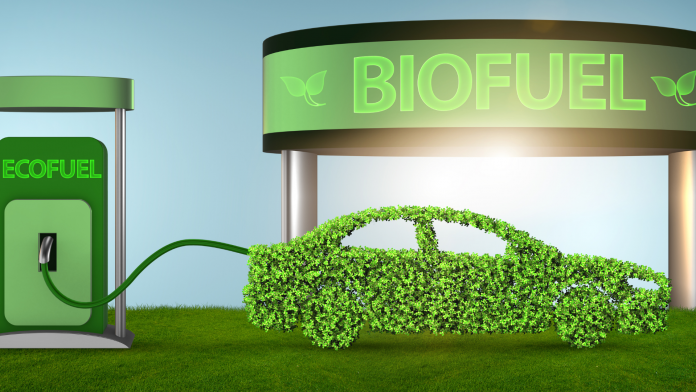“Biofuels are the future of energy in this nation and around the world.” – Rod Blagojevich
World Biofuel Day is commemorated on 10 August every year to create awareness about the importance of non-fossil fuels as an alternative to conventional fossil fuels and to highlight the various efforts made by the Government in the biofuel sector. It is celebrated in remembrance of Rudolf Diesel, who created the diesel engine. It has been celebrated by the Ministry of Petroleum and Natural Gas since 2015. The theme of 2022 World Biofuel Day was “Biofuels for Sustainability and Rural Income”. The theme for 2023 is yet to be announced.
What is Biofuel?
Biofuels, derived from organic sources like plants, crops, and animal waste, offer a promising alternative to conventional fossil fuels. Any fuel that is derived from biomass, like plants, agricultural wastes, crops, algae etc.,is known as biofuel. With a growing concern for the environment, these renewable fuels play a pivotal role in reducing carbon emissions by up to 90%, making them an essential component of the journey towards a greener world.
India’s biofuel prowess
India is one of the leading producers of biofuels in the world. During the Ethanol Supply Year 2021-22 (from December 1 to November 30), a staggering 433.6 crore liters of ethanol were procured by Public Sector Oil Marketing Companies (OMCs) from domestic producers and blended with petrol, showcasing a significant stride towards cleaner energy. Moreover, ethanol supply has increased to 322 crore litres (contracted) in 2020-21 from 38 crore litres in 2013-14. Additionally, over the course of the financial year 2022-23, 5.83 crore liters of bio-diesel were procured for blending with diesel, further bolstering India’s commitment to reducing carbon emissions.
National Policy on Biofuels-2018
The policy was notified by the Ministry of Petroleum and Natural Gas on 04.06.2018 in supersession of National Policy on Biofuels, promulgated through the Ministry of New & Renewable Energy, in 2009. The policy has the objective of reaching 20% ethanol-blending and 5% biodiesel-blending by the year 2030. Due to advancements in the field of Biofuels, amendments are done to the 2018 policy. In 2022, the Union Cabinet, chaired by Prime Minister Narendra Modi, approved the amendments. The following are the main amendments that were approved:
-to allow more feedstocks for production of biofuels,
-to advance the ethanol blending target of 20% blending of ethanol in petrol to ESY 2025-26 from 2030,
-to promote the production of biofuels in the country, under the Make in India program, by units located in Special Economic Zones (SEZ)/ Export Oriented Units (EoUs).
This amendment proposal will make the way for Make in India drive thereby leading to reduction in import of petroleum products. As many more feedstocks are being allowed for production of biofuels, Atmanirbhar Bharat will be promoted. This will give a push to the Prime Minister’s vision of India becoming ‘energy independent’ by 2047.
India’s vision and G20 leadership
India’s ambitious approach towards biofuels is reflected in its “National Policy on Biofuels – 2018”. This strategic framework outlines plans to increase biofuel production, thus reducing the nation’s dependence on imported petroleum products. As India undertakes its G20 presidency, it is placing emphasis on international cooperation for energy security and the expansion of emerging fuels like biofuels and hydrogen. Government has also notified Pradhan Mantri JI-VAN (Jaiv Indhan – Vatavaran Anukool fasal awashesh Nivaran) Yojana for promoting Second Generation (2G) ethanol production from cellulosic and lignocellulosic biomass including petrochemical route in the country by providing financial support for setting up 2G ethanol bio-refineries.
With the alarming rise in carbon emissions, the adoption of biofuels has never been more crucial. The positive environmental impact is undeniable, as they significantly curb harmful emissions that contribute to climate change. As we commemorate World Biofuel Day, it’s imperative that nations and individuals alike recognise the role biofuels play in driving us towards a cleaner and more sustainable future.










